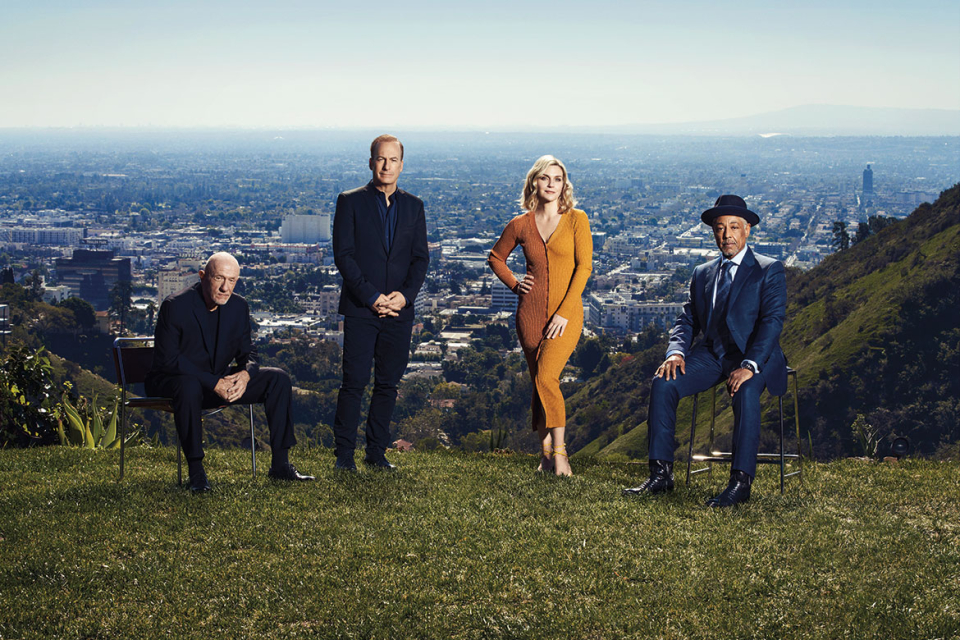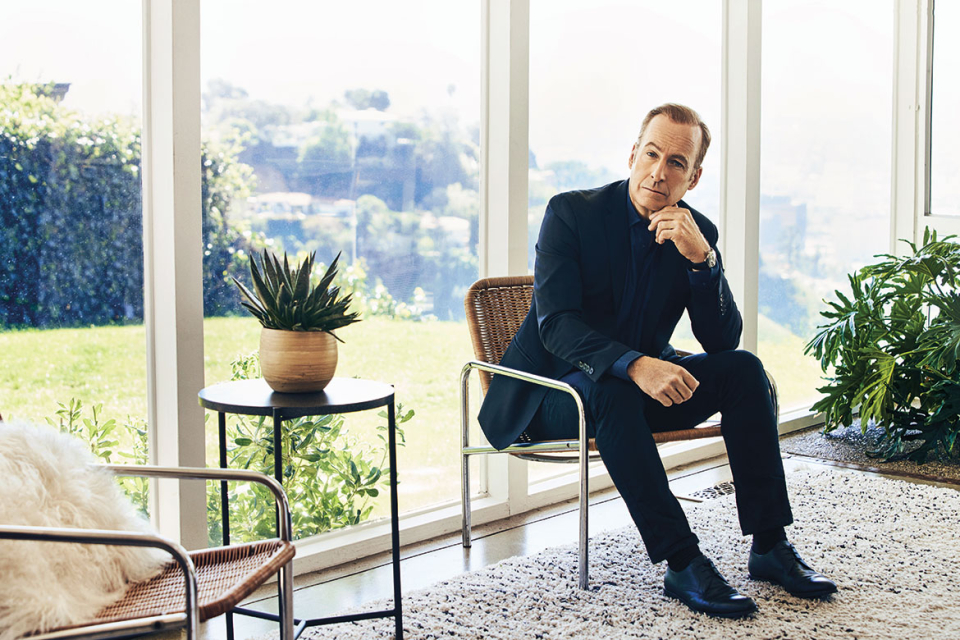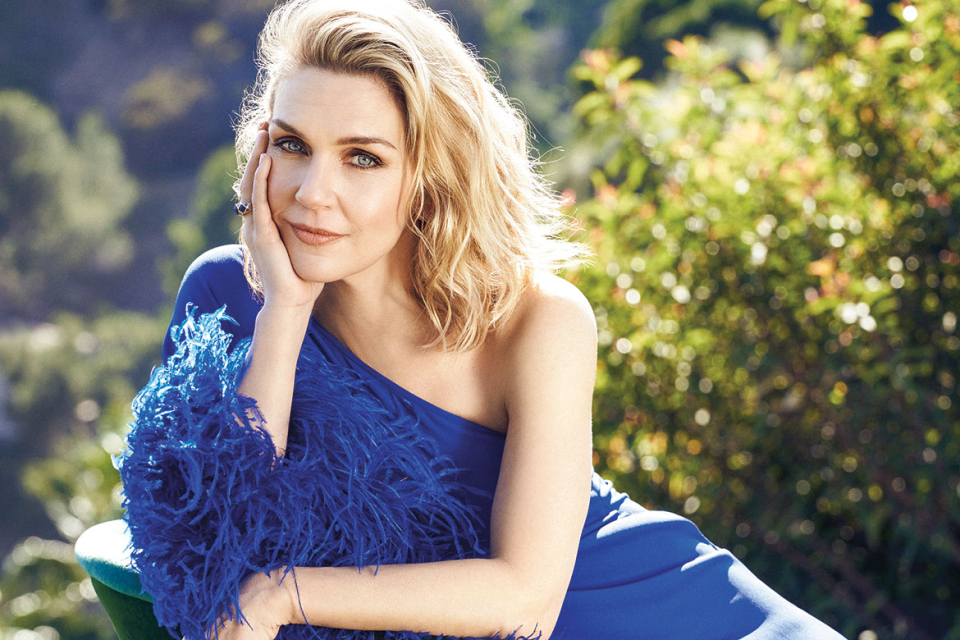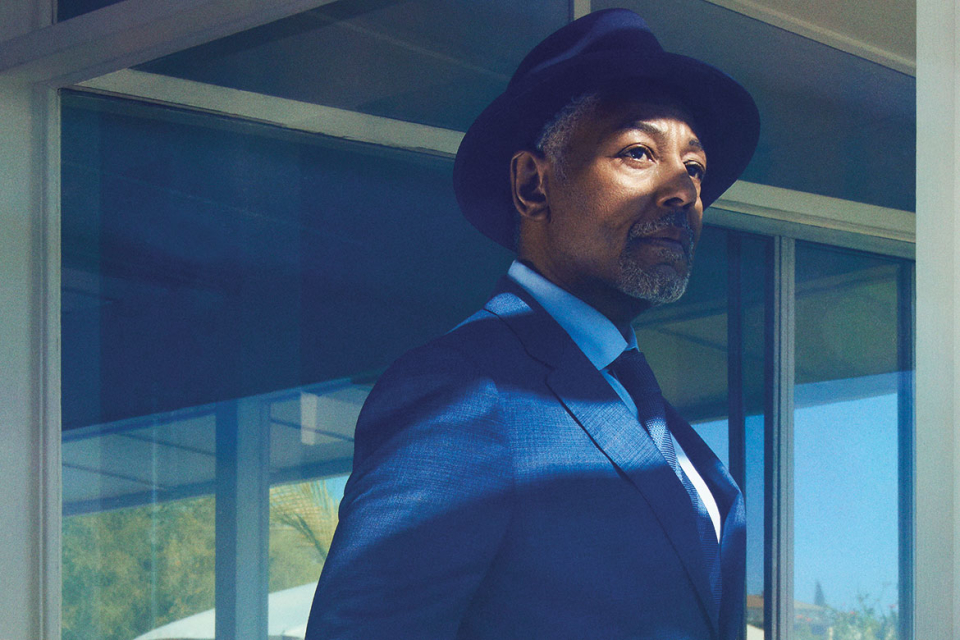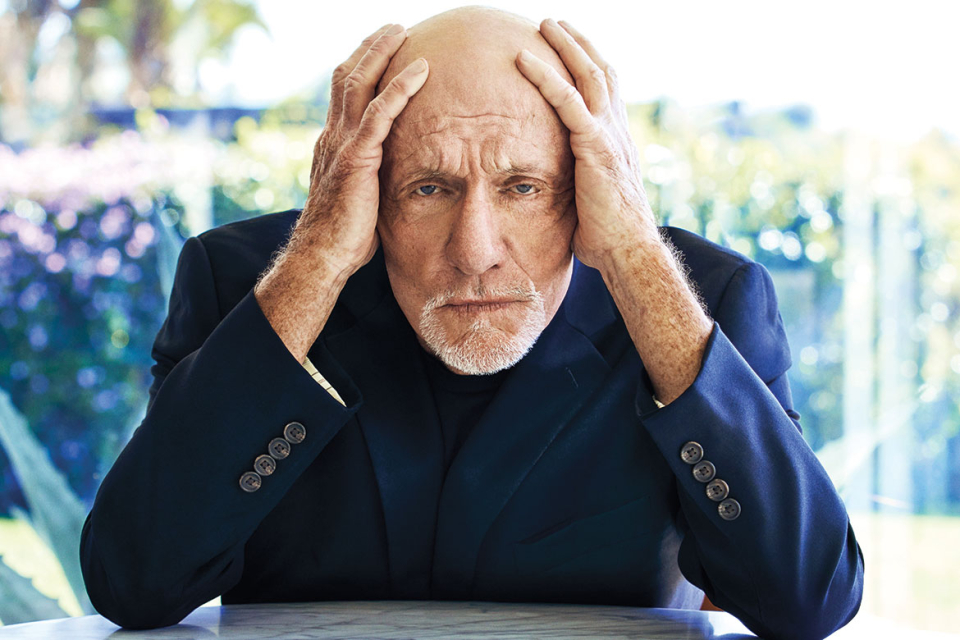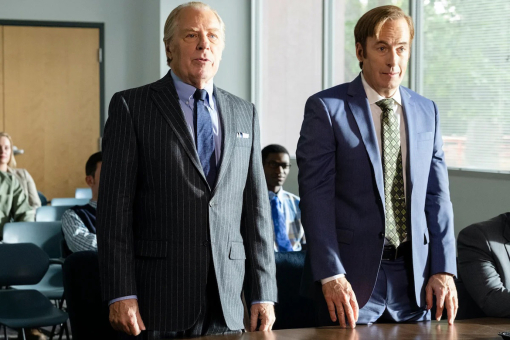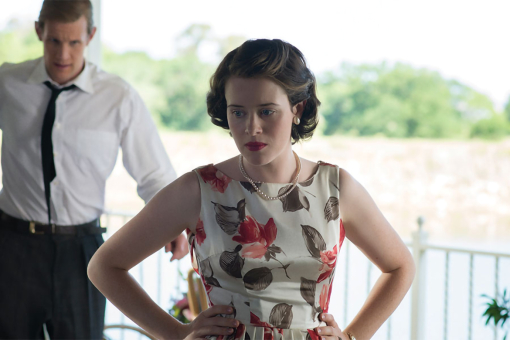For thirteen years now, Bob Odenkirk has played lawyer Saul Goodman, aka Jimmy McGill. The freewheeling ambulance chaser first appeared on Breaking Bad, in the opening episode of season two. Quicker than you can run a credit card, he became one of the indispensable characters of the AMC series.
A year later, Jonathan Banks, as retired cop-turned-fixer Mike Ehrmantraut, and Giancarlo Esposito, as drug kingpin Gustavo Fring, joined the cast. Each eventually met a violent end at the hands of Bryan Cranston's Walter White, the onetime chemistry teacher who embraced the drug trade.
When the show ended in 2013, Breaking Bad creator Vince Gilligan and executive producer Peter Gould proposed a spinoff. Two years later, AMC premiered Better Call Saul, a prequel to Breaking Bad. It starred Odenkirk and Banks and introduced Rhea Seehorn as Kim Wexler — Jimmy's friend, colleague and love interest. Esposito returned as Gus in season three.
The sixth and final season is now unfolding, with seven episodes starting April 18 and the final six due July 11. Production of that season was interrupted, and not just because of Covid. Last July, Odenkirk had a heart attack on set. After a long day of work, he was hanging out with Seehorn and costar Patrick Fabian, listening to a Chicago Cubs game and riding his exercise bike when he collapsed. He returned to set in September to finish filming.
To discuss the final season and their characters' journeys, emmy contributor Neil Turitz recently Zoomed with Odenkirk, Banks, Esposito and Seehorn. The following is an edited composite of their conversations.

Bob, how's your health?
Bob Odenkirk: I'm doing really well. I had surgery on July 28, and they did a great job. They knocked out the plaque and put in stents, and I take some blood thinner–type medication. I'm working out, I feel good.
Rhea, you were there when it happened, right?
Rhea Seehorn: I was. Because of Covid, on these giant soundstages if you're between shots — if it's a long time for the next setup — actors can go back to their trailers. Thank goodness Bob did not do that. That would have been disastrous.
BO: People have been so kind and thoughtful and caring — I still can't believe it. I'm still thinking about it all the time.
Well, people like you and they like your work, which seems like a perfect segue. Three of you have been playing these roles for over a decade. In a prequel, you're laying groundwork for things that have already happened. How complicated is that to play?
Giancarlo Esposito: I had mixed feelings about trying to come back and figure out new ways to reinvent Gus. Of course, I trust the writing implicitly, but I had to have conversations about whether there was going to be any new information or new characterization. I, as an actor, began to work backwards. [I knew that what] would excite me was to have a more hotheaded Gus, a more vulnerable Gus, a guy who's not so in control.
Jonathan Banks: I love Mike and I thought it was a great character. I'll be doing Mike's backstory in my mind for many years. Probably forever. I'm glad that we got the story of his son, his feeling of responsibility for his son's death. And I think there was a lot more.
BO: When we went to do the first season, I said we had to make Jimmy likable. Peter [Gould] agreed that that was the first challenge, that Jimmy wasn't fun to watch all by himself outside of the world of Breaking Bad, unless you figured out who he was as a sympathetic guy. The key was, he had somebody he loved — his brother Chuck, played by Michael McKean. And once you knew he was worried about somebody and taking care of somebody, then you could care about him much easier.

GE: So many times, when you come back as a character you [already] played, it has become iconic. You step into shoes that have already been built, already been shined, already broken in. And I wanted to have some wiggle room within that. So I found ways to make this a guy who was a little bit different, not someone I'd played before.
Rhea, you're the only one here who got to create something new. I imagine that has its own challenges.
RS: It has its daunting side, to walk in and be the kid who hasn't been in this sandbox before. Not being a beloved Breaking Bad character. Luckily, everyone — the crew, the cast, critics, fans — did accept her. Partially because of how exceptionally well-written Kim is.
In a show known for its rich dialogue, Kim often says a lot without saying a word.
RS: I was encouraged to constantly delve into the subtext and what's not said. They wrote her speaking very economically. I took off with that and ended up with this character who has an interior life that, thank goodness, the audience was intrigued by. There are many scenes where the audience is Kim's greatest confidant, because they know that I am thinking things other than what I'm displaying to people in the room. Which is fun. She is quite inscrutable.

Treating Saul and Breaking Bad as one larger story, of all its characters, Aaron Paul's Jesse Pinkman is the only one who moves toward morality as the story goes on. Everyone else seems to embrace the darkness and sink further into the abyss, don't you think?
JB: I wouldn't have put it in those words, that Jesse goes towards morality. I've always said that Mike saw something in him that wasn't, you know, irretrievable. And, gee, I wish I could have stolen that line from you a long time ago.
BO: It's not a spoiler, but in this final season, Jimmy's up to all kinds of off-the-charts craziness. And it's pretty cool. It's about who he is as a person deep inside, in the same way that Walter White, toward the end of his journey, became this elemental Walter White, this pure ego. It's not the same story, but Jimmy McGill also becomes sort of a pure version of himself.
RS: With Kim, you do see her get increasingly frustrated with the law, the more she has to confront the fact that moral and immoral are not the same as legal and illegal. The ethical person doesn't necessarily win the case. I see her as keeping a vise grip on trying to be a good person, but also worried that if she lets herself slip and doesn't police herself for one second, she might fall off this fence she's walking on.
GE: When you dangle the carrot, desire, revenge, all these things really chip away at a human being. You start trading away a little, then you wind up trading away a lot. I'm in complete synchronicity with
that moment when you're offered something that you don't really want to take. But you figure out a way to say, "I'll take it, I can work with that." And that's the beginning of the end.
JB: I think Mike had been dark for a long, long time, even before the death of his son. He was a sniper in Vietnam. With the richness of these characters, it seems like you could go on and on. You could probably even do another show that focuses purely on Mike. I think you could probably do that about any of these characters.
GE: We may be able to fathom and have room for the rise of Gus one day. I feel like there's an audience for that story.

Bob, we don't know how Jimmy ends up. Last we saw him, he was at a Cinnabon in Omaha, but he had some kind of episode and we don't know what his ending really is.
BO: Yeah, I can't tell you. I'm bursting to tell you! I would love to tell you, because I'm very excited about the surprising shifts that take place that are completely justified.
Rhea, you're the only one whose ultimate fate is a mystery. Obviously, you can't offer details, but in Kim's perfect world, what would her ideal ending be?
RS: I think Kim wants to stay with Jimmy and end up doing public defender work, starting a legal clinic for the disadvantaged and the underserved. Making sure that they get a fair shake. I think that is in her DNA.
What about the others? Mike and Gustavo are dead, but what do you think would have been their ideal endings?
GE: In my brain, Gustavo becomes the king [of the cartel]. I've said this before, but Gustavo could be making toothpaste. He's a salesman, and he knows how to run the operation. That's a great talent, keeping everyone happy, being the CEO. He could do it well.
JB: Mike saw himself in a small town on the Mediterranean in Spain. On the Costa Blanca. Back when you could sit right next to the Mediterranean and listen to an open-air piano from a little bar at two o'clock in the morning. Where he can take his granddaughter, where she could play in the street safely till midnight and let the world roll by. And I guarantee you there is a beautiful Spanish woman. That's where Mike would have liked to see it go.
Bob, same question for Jimmy.
BO: He's an accident, kitchen sink–type lawyer. And he's with Kim, and she's proud of him. Even though she does corporate law. It's kind of a James Carville–Mary Matalin thing. We're divergent personalities, but we fit together. I get to be me, and she gets to be her. It doesn't make sense to people on the outside, but it fits.
You've all had rich careers playing interesting characters, but it's fair to say that Jimmy, Kim, Gustavo and Mike have become signature roles. Is that something you think about?
GE: Well, you're partially correct. People recognize me from The Usual Suspects and many Spike Lee movies. But, yes, I do agree. I could be on an airplane, going to the bathroom, when someone hits the wall, starts breathing heavy. I don't know what's wrong. I think the woman's having a heart attack, and all of a sudden I get it. [She says:] "Go to the bathroom before me, Gus." That's a tribute to what I do in my work. Some roles are just iconic and will live on forever with certain audiences. Others will come and go. If you're open enough, there's that "bang" moment where you have one that can allow you not only personal success, but also critical success and acclaim, as well as iconic status. It's a great honor.
RS: It would be a fool's errand to try to match this. It is a gift, this role that I got to do. But the fact that I was surrounded by people who not only thought I could do it, but thought I could even bring more to it, is
the most lovely environment you can possibly imagine as an artist.
JB: There have been some wonderful compliments along the way, but I literally had a guy pass me the other day and say that, between Better Call Saul and Breaking Bad, we have become part of the fabric of America. And I thought, Wow. You can be coy and go, "Oh, with all the different characters I played, the work I've done here, I've done there...," but no. Mike is a gift. A gift of a lifetime. If people say that's your signature role, and that's what they remember you by? That's just fine with me.
BO: People have asked me, are you worried about being too associated with Saul? But I don't think I'll ever get a better role than this. How could there be? I get to slide around between all these different subsets of personality and presence. That's just incredible. Incredible. I'll never have it again. And that's okay.

This article originally appeared in emmy magazine issue #3, 2022, under the title, "Last Call."

